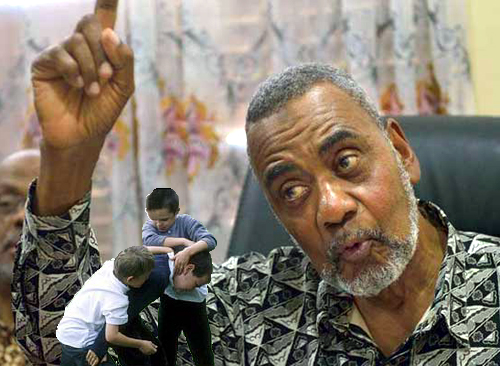 Zanzibar and Burundi, today, are both tinder boxes rooted in ethnicity ready to explode.
Zanzibar and Burundi, today, are both tinder boxes rooted in ethnicity ready to explode.
It’s time to stop pretending that both Christianity and Islam, Hutu and Tutsi, or Arab and African are mostly “good.” It’s time to denounce religious ideology and ethnicity as mostly “bad.”
Recent studies about religion reenforce this. “Religion doesn’t work,” a South African newspaper has concluded. “Children of non-religious people are nicer than their religiously raised brethren.” (More on this below.)
Zanzibar’s divide is two-fold: Africans who link their heritage to animism and Christianity versus Arabs dedicated to Islam; and a never successful federation between Zanzibar and Tanganyika nearly a half century ago, which poorly formed modern Tanzania.
Burundi’s divide is wholly tribal: Hutu versus Tutsi, the same divide that led to the Rwandan genocide.
Zanzibar has progressed far more than Burundi has in the modern era. From ancient times the island was the seat of Arab power on the Swahili African coast. Its royal families grew trade with parts of the world as far afield as China.
Its gigantic misstep in history was to become dependent upon the slave trade. That gave the British colonizers a moral platform on which to justify their empire building. (It is, of course, illustrative that British industry – ships in particular – were indispensable in the development of the slave trade.)
Burundi is struggling through the ethnic chasm between Hutu and Tutsi that Rwanda solved by becoming an autocratic if communist state. Smaller than already small Rwanda, it’s nearly lockstep historically.
A “civil” (read “ethnic”) war was ended almost a decade ago with a peace agreement that led to free enough elections and a period of relatively stability. But the democratic mechanisms riveting the government were inevitably seen as threats by one side to the other, and the current man power is so unconstitutionally – nondemocratically.
As everywhere in the world, from Syria to Myanmar to Obama/Netanyahu, ethnic divides easily reenforce themselves with religious ideology.
Obviously I don’t want to give up St. Patty’s Day or Christmas, for that matter. But it’s time to grow up. Black Lives Matter. Intelligent Lives Matter.
A study published last week in Current Biology of 1170 children from a variety of religious backgrounds around the world concluded that children from religious families were less generous and more intolerant and sanctioned physical punishment more than children from non-religious families.
Christian and Muslims scored identically with regards to generosity, both groups are 28% less likely to share than nonreligious children.
The children were tested in seven different cities: Chicago, Cape Town, Toronto, Amman, Izmir, Istanbul and Guangzhou.
Researchers asked the parents to identify their child’s religious orientation: 23.9% were Christian, 43% Muslim, 27.6% not religious, 2.5% Jewish, 1.6% Buddhist, 0.4% Hindu, 0.2% agnostic, and 0.5% something else.
The research funded by the religious John Templeton Foundation used animation, physical games and structured social intercourse with other children in the study to reach these conclusions.
“Consistent with previous studies, in general the children were more likely to share as they got older. But …the negative relation between religiosity and altruism grew stronger with age; children with a longer experience of religion in the household were the least likely to share.”
According to Science Daily the studies “challenge the view that religiosity facilitates prosocial behavior, and call into question whether religion is vital for moral development — suggesting the secularization of moral discourse does not reduce human kindness. In fact, it does just the opposite.”
In a world of diminishing resources, increasing human demand and aggressive global warming, some very tough decisions are going to have to be made.
The Bible and the Koran, like Mao’s Little Red Book or Gaddafi’s slightly larger Green Book, should not be used as references for a solution.
